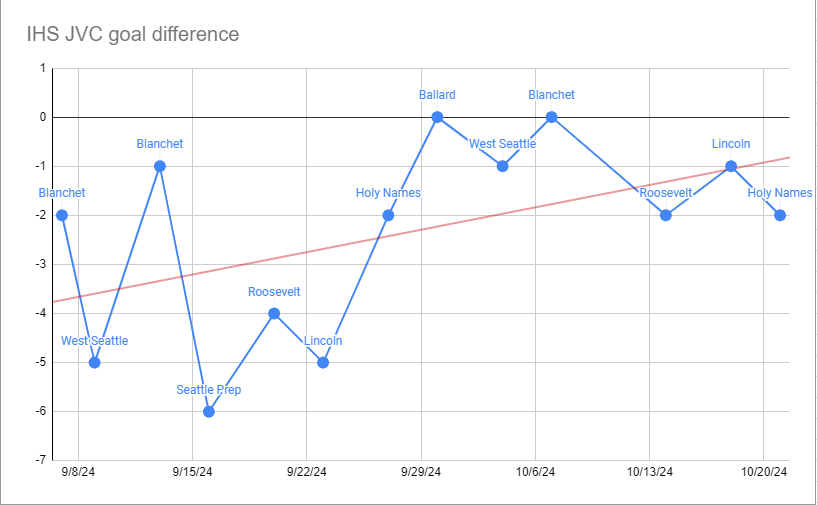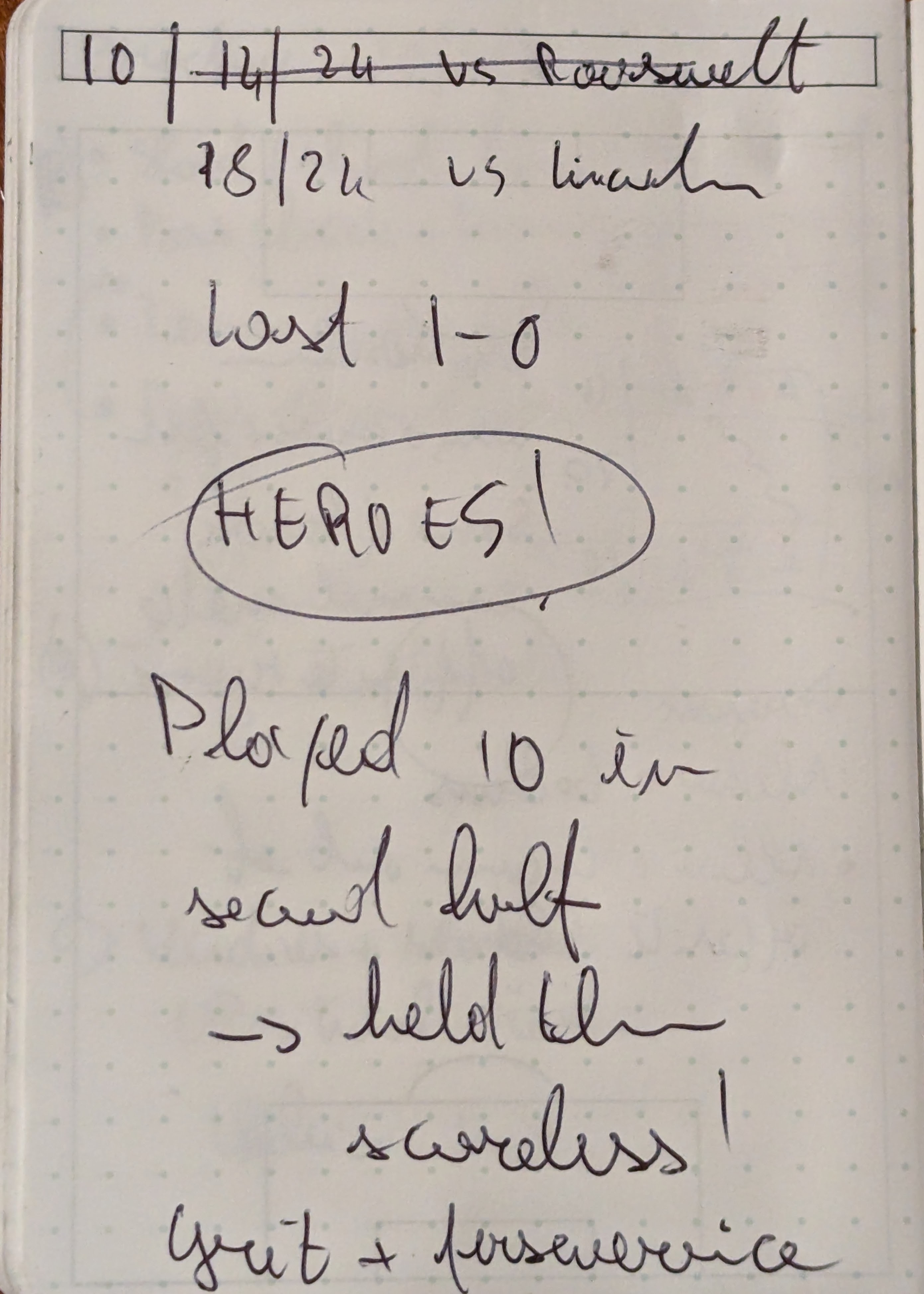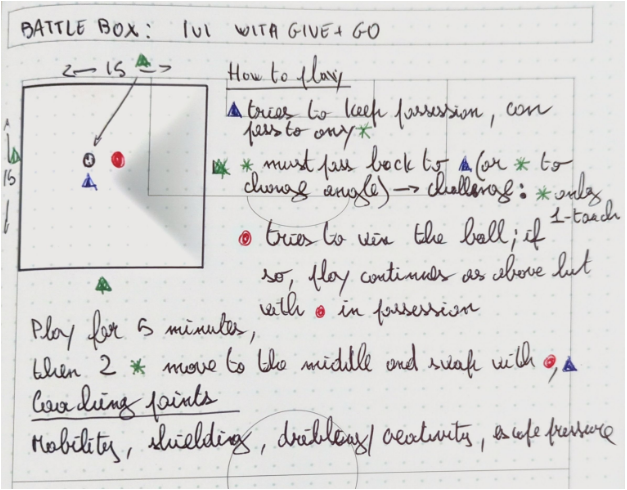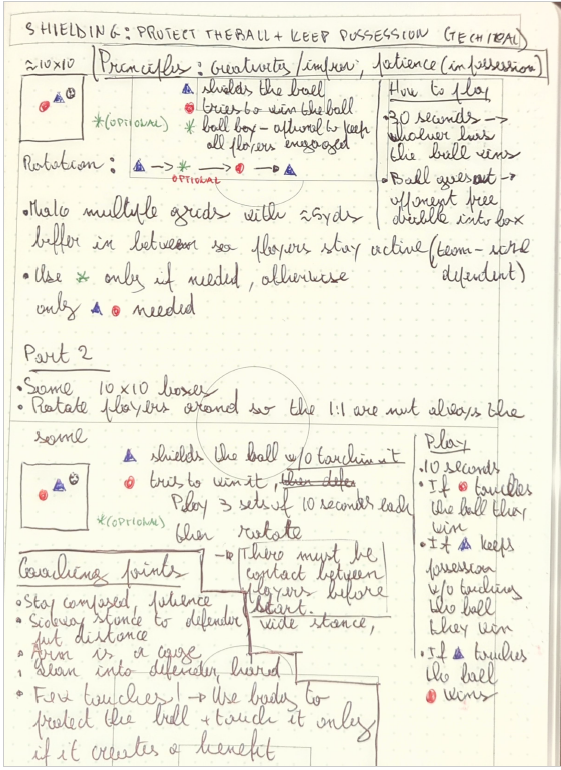Can a winless season still be a success?
“Success is not about winning trophies, it’s about making a positive impact on and off the field” - Mikel Arteta
This fall I coached the JVC girls soccer team at Ingraham High School in Seattle. It was the first time I coached this age group, mostly 9th and 10th graders, after having coached boys and girls in middle school for the past 4 years. I was looking forward to the experience, but I also knew I would face challenges that would test my coaching abilities.
Most of the players (9 out of 17) had no or little experience with soccer, and the schedule had us face schools that consistently field very strong teams. Indeed we finished the season with no wins, 0-2-11. Yet, the joy on the girls’ faces at the end of the season, the pride in their accomplishments, and the sense of community we built made the season a success. I’ve never seen a group of players so energized after a losing season! In the words of a player: “We wouldn’t be where we are now without you, coach!”; and a parent “It was so fun to watch them improve during the season!”
How the season unfolded

We had a rough start. In the first 7 games of the season our opponents outscored us 28-3, our defense was disorganized, we hardly ever won the first ball, and could hardly string together 3 passes. And this was in spite of borrowing 2-3 more experienced freshmen from the JV team for some of these games.
But then, all our hard work during training started to show up in matches. These girls showed incredible grit, determination, and school spirit. They improved their first touches, tightened up the defensive coordination, sped up their passing, and played as a team for each other, rather than stress about wins and losses. We held a top team scoreless, drew another 1-1, held another team to 1 goal after a scoreless 75 minutes while playing with only 1 sub, held another top team to 1 goal while playing the entire second half with only 10 players; and … we did not borrow JV players in the last part of the season, yet we kept our opponents to only 6 goals in the last 6 matches.

Restrospective: Lessons (re)-learned
First, I immediately recognized that I had to “meet them where they are.” It is the coach who must adapt to the players. It is not the job of the players to live up the coach’s egotistic aspirations to “win the season.” Second, focus on improvement, development, and enjoyment rather than wins and losses. The overall experience and fostering a love for the game is more important than the achievement. The players will forget the specific wins and losses, but will remember how much they enjoyed playing. With these principles in mind, here’s specifically what resonated with the players …
Mentality and expectations
- Meet them where they are: set incrementally challenging yet achievable goals for the team and for individuals.. Instead of “Let’s win this game”, set goals like “Can we keep them out of our penalty area?”, “Can we hold them scoreless longer than the last game?”, “Can you use your body more to protect the ball?”
- Growth mindset: Create a psychologically safe environment that fosters learning and improvement over winning. It was safe to fail, get it wrong, learn, and do better next time.
- “Catch them being good”: emphasize their improvement as a team and individually, rather than always correcting mistakes.
- Foster “serious fun”: demand focus, effort, and accountability from the players during training and in return they experience how fun it is to compete and leave it all on the pitch. After a hard-fought game where we conceded very little to our opponent, I actually heard this from a smiling player: “That loss was as good as a win!”

Choice of training sessions
Focus on the basics, mind the details, coach by principles, train realistic situations, keep them moving.
- Defending 1v1: fast-slow-side-low. Principles: Pressure/delay
- Defending 2v2 and 3v3: build on 1v1, add principles of cover/depth and balance; patience/discipline
- Battle boxes: 1v1 to defend or win the ball in small spaces, decisively use our bodies to defend the ball, build confidence in using our bodies.
- Technical training: Practice receiving the pass across the body with the inside of our back foot, opening up our hips to face the direction we want to pass or carry the ball after receiving. Quick, one-touch controlled passing and receiving exercises, adapting our passes to the receiver and being on our toes to receive. Lots of 3v3, 5v5 etc. small-sided games, with various constraints, or possession-type games to build that “serious fun” mentality.

Facing our opponents: adapt and find an identity
I (re)learned a lot about being adaptable to the players. Meet them where they are! It took me a couple of weeks to come up with a formation that better suited the players’ abilities. I started with a 1-4-4-2 diamond, thinking that we should keep density in the central channels to disrupt our opponents build-up in the middle third. That did not work, because we were not exploiting the width as a way to relieve the opponent’s pressure and because I had some players in the wrong place. I switched a CB with a CDM, and moved a very mobile and physical player from wing/wingback to CDM, even though she was not as developed technically as you would expect a CDM to be (new to the sport). I also switched to 1-4-2-3-1 formation, which gave the team balance and a strong disruptive ability in the center.
Finally, a lesson I (re)learned was to trust the players, no matter where they play on the pitch and their level of skill. Time and again I was amazed by how much they improved week-over-week, and over time I gained so much confidence in them that I was not concerned one bit about facing strong opponents: I knew we were going to look our best no matter the final score.
So can a winless season still be a success? Yes!
“Success is not about winning trophies, it’s about making a positive impact on and off the field” - Mikel Arteta